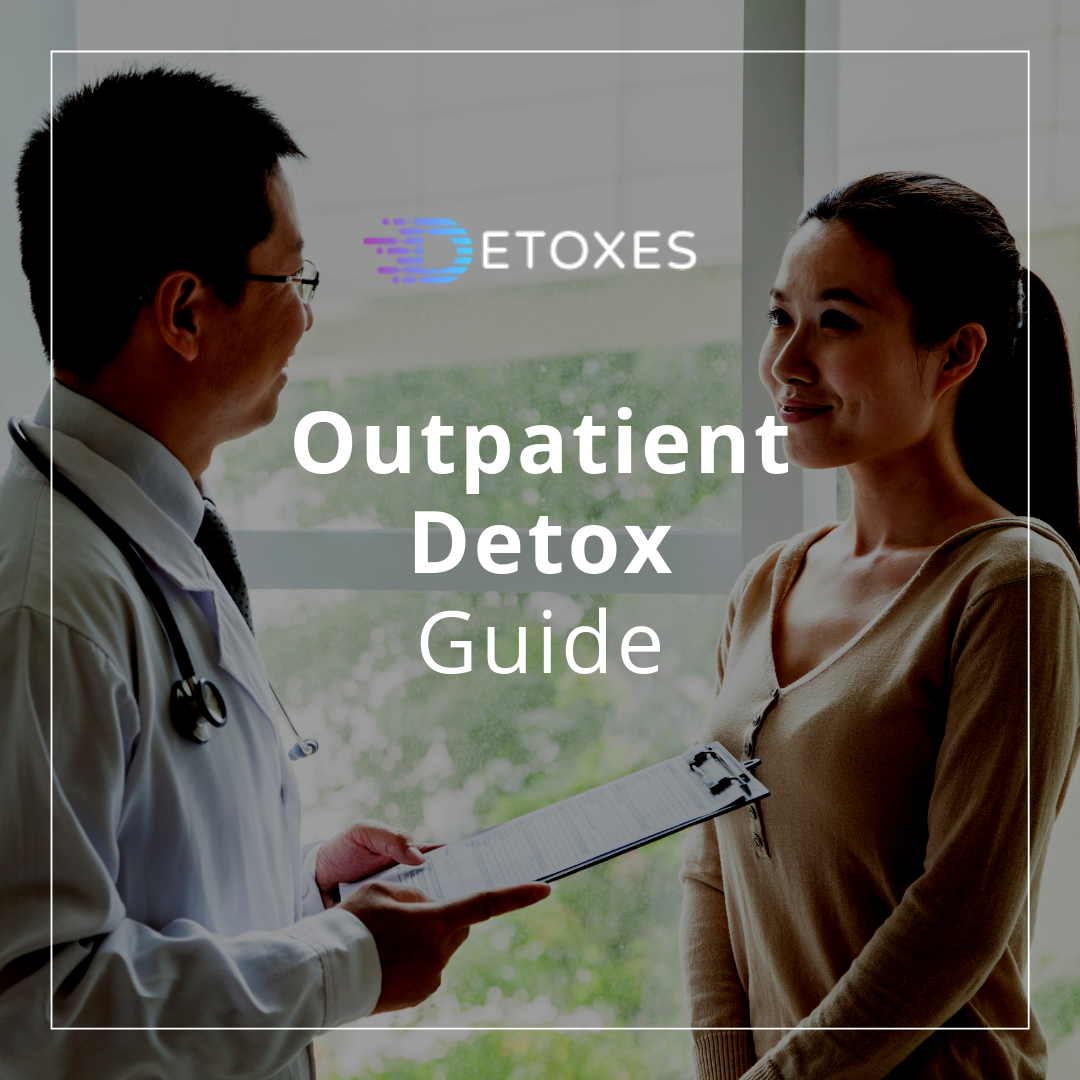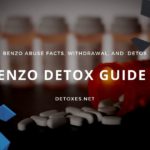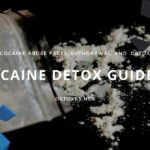Outpatient Detox
Sadly, only 10.9% of individuals needing treatment for a substance-use concern actually end up receiving it (Center for Behavioral Health Statistics and Quality, 2015). For substance users who are unemployed or struggling with financial security, the prospect of entering into an expensive inpatient rehabilitation program is often not a viable option.
However, there are alternatives available to appropriate candidates who do not require 24-hour supervision in a facility. These alternatives come in the form of outpatient treatment.
Outpatient detoxication occurs in clinics, counsellors’ rooms and local health department offices. It refers to a treatment regimen whereby the person seeking treatment is not admitted into a facility or hospital. Instead, they undergo recovery whilst living at home. The onus is on the person themselves to see a doctor, attend all group therapy, receive medication if applicable, and have their progress tracked (Healthwise Staff, 2017). Recovering in one’s own community may in term help improve re-adjustment to community life (Center for Substance Abuse Treatment, 2006).
When is Outpatient Detox Appropriate?
Outpatient treatment is appropriate if (Healthwise Staff, 2017):
- One wishes to continue work whilst undergoing recovery. The user needs to be able to manage both work and the process of recovery and detoxication
- The person in recovery has access to extensive social support (e.g. supportive family structure)
- The area in which he or she stays is not subject to multiple drug influences, and he or she stays close to an outpatient treatment center
- Inpatient treatment is too expensive
- The user is not at risk of severe and potentially life-threatening complications of withdrawal e.g. delirium tremens from alcohol withdrawal
- The user is not suicidal or homicidal
All of the following imply that inpatient treatment may be more applicable: if outpatient treatment has failed in the past, severe withdrawal symptoms are experienced, 24-hour supervision is required, the home situation contributes to drug abuse and the addict in question does not live near an outpatient treatment clinic (Healthwise Staff, 2017). Please read our article here on inpatient treatment to ascertain if it may be more suitable for you or a loved one.
How Do you Begin an Outpatient Detox Program?
It is important to note that not all outpatient detox programs are the same. There is a lot of variation in terms of the types and intensity of services or treatment offered (National Institute on Drug Abuse, 2018).
There are two main types of outpatient treatment, which are as follows (Healthwise Staff, 2017):
- Standard outpatient treatment
- Usually includes 1 or 2 group therapy sessions a week. These may fall over evenings or weekends to fit into ones schedule. The program may go on for a year or more.
- Intensive outpatient treatment
- Usually involves roughly 10-20 hours of group therapy or counselling (minimum of 9 hours) over three days of the week. This may continue for 1-3 months, with more content packed into a shorter timeframe. Many programs become less intensive over time (Center for Substance Abuse Treatment, 2006).
An outpatient program needs to be relatively close to you. Always look for a program that aims to engage families, employers and significant others. Furthermore, always use programs that incorporate evidence-based approaches. These include the following (Center for Substance Abuse Treatment, 2006):
- Cognitive-behavioral therapy
- Motivation enhancement therapy
- Individual drug counselling
- Relapse prevention training
- Contingency management and incentives
- 12-Step facilitation
- Case management
Ask your chosen facility if they provide one or more of the above approaches.
Regardless of which facility you choose, any program for less than 90 days is of limited effectiveness (National Institute on Drug Abuse, 2018). Therefore, make sure that you choose a program where participation time is for 90 days or more.
After getting in contact with your chosen facility, you will often meet with a clinician and/or nurse to help you or a loved one do the following (Healthwise Staff, 2017):
- Understand the program
- Fill out paperwork
- Answer questions
- Assess your health with a drug screen
- Determine family and living support
Thereafter, recommendations will be made based on whether an outpatient or inpatient detox is more likely to work for the specific individual.
Stabilizing As an Outpatient
The next major phase of detoxification is stabilization. This is the stage after commitment has been made to the outpatient program.
The physical wellbeing of the patient is of utmost importance, since withdrawals can cause unpleasant symptoms and medical complications. As previously implied, certain substances have withdrawal stages that are dangerous and require inpatient rather than outpatient facilitation. However, supervised medication targeting withdrawal symptoms can still be used in an outpatient setting. For example, a study by Mitchell et al. (2013) has shown that buprenorphine can be used in community-based programs to combat opioid withdrawal. It showed that opioid-dependent patients showed short-term improvements when receiving monitored buprenorphine treatment in both standard and intensive outpatient treatment.
Group therapy is also critical at this stage. It provides non-professional, peer-based encouragement and understanding throughout the recovery. This enhances self-efficacy and confidence to prevent backsliding. Having someone else be invested in a person’s recovery is an effective motivator for that person (Healthwise Staff, 2017).
Effectiveness – What Does the Evidence Say?
So how effective are these programs exactly and what kind of results do they achieve?
The evidence supports the implementation of outpatient treatment in the right candidates. A meta-analysis of the literature was performed that showed that adolescents showed reductions in substance use after outpatient treatment (Tanner-Smith, Wilson & Lipsey, 2013). The greatest improvements occurred when family therapy and group counselling formed part of the therapy provided. As previously stated, always ask a facility representative about whether they provide such evidence-based therapies.
Intensive outpatient treatment centers were shown to be as effective as inpatient treatment for most individuals seeking recovery (McCarty et al., 2014).
One study looked at outcomes of patients enrolled in an ambulatory, outpatient detoxification program. It found that positive outcomes were influence by medical protocols for detoxification, psychosocial therapies, supported housing and attention to patient satisfaction (Wiseman, Henderson & Briggs, 1997).
The success rate after completion of these programs, however, has not always been encouraging. Soyka & Schmidt (2009) followed up previous outpatient patients after 2-years and found that 58% had remained abstinent. However, this may be due to the patient characteristics themselves rather than the program characteristics. Volpicelli (1992) found that only 30% of patients completed outpatient detoxification when they had experienced alcohol-related seizures, previous delirium tremens, unemployment, and/or intoxication on initial visit. On the other hand, patients without this history had a 95% chance of completion. Therefore, it is very patient-dependent on how successful the program will be. Patients with certain characteristics may be better suited to inpatient treatment.
In Conclusion
No person should have to struggle on their own with the monster of addiction. Outpatient detoxification should not be thought of as an “easier way” to detox. Nor is it a chance to enjoy personal freedoms. Especially in the intensive form of this detox method, the process can be gruelling and certainly not easy.
It requires a high level of commitment from the person attending. Any person choosing to go this route has to be ready to accept the challenge and responsibility of recovering on an outpatient basis.
References
Center for Behavioral Health Statistics and Quality. (2015). Behavioral health trends in the United States: Results from the 2014 National Survey on Drug Use and Health (HHS Publication No. SMA 15-4927, NSDUH Series H-50). Retrieved from http://www.samhsa.gov/data/
Center for Substance Abuse Treatment. (2006). Treatment Improvement Protocol (TIP) Series. 47. Rockville, MD: Substance Abuse and Mental Health Services Administration; Substance Abuse: Clinical Issues in Intensive Outpatient Treatment.
Healthwise Staff. (2017). Inpatient and Outpatient Treatment for Substance Use Problems. Retrieved February 28, 2019 from https://www.cigna.com/individuals-families/health-wellness/hw/medical-topics/inpatient-and-outpatient-treatment-for-substance-ad1101
McCarty, D., Braude, L., Lyman, D. R., Dougherty, R. H., Daniels, A. S., Ghose, S. S., & Delphin-Rittmon, M. E. (2014). Substance abuse intensive outpatient programs: assessing the evidence. Psychiatric Services, 65(6), 718-26.
Mitchell, S. G., Gryczynski, J., Schwartz, R. P., O’Grady, K. E., Olsen, Y. K., & Jaffe, J. H. (2012). A randomized trial of intensive outpatient (IOP) vs. standard outpatient (OP) buprenorphine treatment for African Americans. Drug and Alcohol Dependence, 128(3), 222-9.
Soyka, M., & Schmidt, P. (2009). Outpatient alcoholism treatment–24-month outcome and predictors of outcome. Substance Abuse Treat Prev Policy, 4, 15. doi:10.1186/1747-597X-4-15
Tanner-Smith, E. E., Wilson, S. J., & Lipsey, M. W. (2012). The comparative effectiveness of outpatient treatment for adolescent substance abuse: a meta-analysis. Journal of Substance Abuse Treatment, 44(2), 145-58.
Volpicelli, J. (1992, April 16). The Pharmacological Management of Alcohol Dependence. Paper presented at the University of Pennsylvania, Philadelphia, Pennsylvania.
Wiseman, E.J., Henderson, K.L., & Briggs, M.J. (1997). Outcomes of patients in a VA ambulatory detoxification program. Psychiatr Serv, 48(2):200-3.
Medically Reviewed: September 25, 2019

All of the information on this page has been reviewed and verified by a certified addiction professional.








